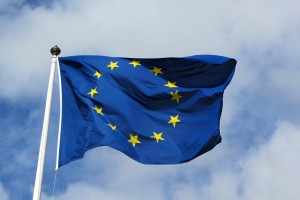
After more than 40 years of operation, DTVE is closing its doors and our website will no longer be updated daily. Thank you for all of your support.
Service providers slam new EU e-privacy rules
 A group of 50 European service providers, media groups and publishers have called for an urgent review of the EU’s proposed e-privacy regulation, arguing that it will give more power and advantage to global internet giants and penalise providers of advertising-dependent services in Europe as well as new market entrants.
A group of 50 European service providers, media groups and publishers have called for an urgent review of the EU’s proposed e-privacy regulation, arguing that it will give more power and advantage to global internet giants and penalise providers of advertising-dependent services in Europe as well as new market entrants.
The group of media companies protesting the change include service providers Orange, Altice France/SFR and Bouygues Telecom, broadcasters TF1 and BFMTV and a large number of press groups.
The e-privacy law, also known as the General Data Protection Regulation (GDPR), which is currently being discussed by member states, is due to come into force across the EU on May 25.
The new rules will effectively block the use of cookies on websites without consumers’ consent. According to the group of 50 companies protesting the changes, the change will benefit big internet players by devolving the management of cookies trackers to browser providers. The EC has suggested that users enable the use of cookies through their browser settings.
According to the European companies, the change will deprive users of the right to decide what kind of relationship they wish to maintain with each individual website.
“This measure would create a major disadvantage for emerging companies, reducing their ability to collect advertising revenue with targeted and relevant messages. It would reduce the possible investment in quality journalism across Europe, preventing press publishers and media to build a trustful relationship with their readers and to market their editorial contents,” the companies said in their joint letter.
The protesting groups also allege that the regulation in its current draft form “provides global players with a preferential treatment for collecting and processing data, notably location data.”
“Data gathered through devices and operating systems would thus be considered as specifically less sensitive than those linked to European communications networks , without any justification and in disregard of an efficient and consistent consumer protection,” the letter says.
The GDPR was adopted by the European parliament in 2016 and is due to come into force after a two-year transition period. The new rules take the form of a ‘regulation’ – something that is binding across the EU – and replaces an older ‘directive’, which is subject to interpretation by member states.


